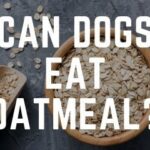Can dogs eat ketchup? Not really, although it is not usually toxic. Ketchup should not be fed routinely. It is junk food with no nutritional benefits to dogs.
Whether or not tomato ketchup is safe for dogs depends on the ingredients. If it contains added toxins, like xylitol, onion powder, or other flavorings, it is harmful to dogs. But if it only contains tomatoes, sugar, salt, and vinegar, it should not be fatal.
Despite this, it contains a high amount of salt and sugar, neither is recommended in large volumes for dogs.
What Should I Do If My Dog Eats Ketchup?
- If you dogs to eat ketchup, first determine how much has been eaten.
- Check the ingredients list.
- Xylitol is the main ingredient you need to be concerned about. This can be toxic in any amount. Contact a veterinarian or the poison helpline if your dog has consumed any amount.
- Onion and garlic may also be present; the level of toxicity depends on the size and weight of the animal and the amount consumed.
- If your dog is displaying any unusual behavior, including lethargy, lack of appetite, diarrhea, or vomiting, contact a veterinarian for advice.
Busy? Get Your Hands Paws On The Answers Quickly…
- Nutritional Information and Common Ingredients In Ketchup and The Benefits and Risks To Dogs
- Can Dogs Eat Other Condiments?
- FAQs
NUTRITIONAL INFORMATION AND COMMON INGREDIENTS IN KETCHUP AND THE BENEFITS AND RISKS TO DOGS

| Nutritional Information per serving (1 tbsp or 17g) | |
| Calories | 15 |
| Total Fat | 0g |
| Sodium | 160mg |
| Total Carbohydrates | 4g |
| Dietary Fiber | 0g |
| Sugars | 4g |
| Protein | 0g |
Tomatoes – NOT TOXIC (with precautions)
It is a common misconception that the tomato fruit is harmful to dogs. This is not the case. The red fruit is safe for dogs to consume (however, it does still contain a small amount of toxin, but is thought to be safe is small quantities) and can be given as an occasional treat.
However, it is the stem, leaves, and young green tomatoes that are unsafe for dogs. This is due to the levels of solanine.
It is thought a substantial amount is needed to cause toxicity (link). According to vetstream toxicity levels range from 0.1% – 1% of a dog’s body weight (depending on the plant type and level of maturity).
Signs Of Toxicity Include:
- Vomiting
- Diarrhea
- Cardiac effects
- Loss of coordination
- Muscle weakness
- Tremors
- Seizures
Sugar – NOT TOXIC (with precautions)
Dogs do not need sugary food (including ketchup). They need some form of sugar, which is broken down from carbohydrates (such as sweet potato, vegetables, grains, etc.), for energy. But this is not in the form of human condiments, desserts, cakes, chocolate, etc.
Side Effects Of Sugar:
Obesity – Sugary food is usually high in calories. These are empty calories that do not fill hunger, meaning your dog will continue to eat. This can easily lead to weight gain. Excess weight can have a significant impact on your dog, including joint problems, heart conditions, and lethargy.
Dental Health – Sugar reacts with bacteria to produce acid, which erodes the teeth. A high sugar diet can lead to cavities and dental work for your furry friend.
Hyperactivity – Dogs usually have a lower tolerance for sugar than humans. This means that just a small quantity can lead to a change in behavior, often for the worst.
Vomiting and Diarrhea – Any new food can lead to an upset stomach in dogs. It is not uncommon for a dog to experience vomiting and diarrhea after consuming sweet treats.
Corn Syrup – NOT TOXIC (with precautions)
Corn syrup is not harmful to dogs, but it is very high in sugar, which, as we learned earlier, can cause obesity, dental problems, and behavioral changes.
Corn syrup is commonly used for dogs with diabetes when their sugars drop, and they have a hypoglycemia attack. It can easily be applied to the gums to raise their sugar levels quickly – this should not be done without advice from the veterinarian.
Salt – NOT TOXIC (in small amounts)
Salt is vital in a dogs’ diet. It helps regulate their fluid balance and helps with digestion.
According to tails, a healthy amount of sodium in food is around 0.25g-1.5g per 100g.
However, if your dog suffers from kidney disease, heart problems, or liver issues, you may need to put your dog on a lower salt diet. This can be discussed with your veterinarian. Many brands cater to low salt diets, like Wellness and Hills Science.
If your dog consumes a considerable amount of any salty food, including ketchup, and has no way to quench his thirst, he may experience salt poisoning.
Symptoms:
- Extreme thirst
- Frequent urination
- Confusion
- Lack of appetite
- Nausea
- Vomiting
- Diahrrea
- Seizures
- Coma
If your dog has consumed high salt food and is experiencing any of the symptoms above, contact a veterinarian and ensure they have a constant supply of clean and fresh water.
Vinegar – NOT TOXIC (with precautions)
Vinegar is thought to be safe for dogs. Many people add apple cider vinegar to their dogs’ diet and coat for the supposed health benefits. These include restoring the body’s natural pH, keeping them clean, and aiding with digestion.
Although, as with any new food, it can cause diarrhea and vomiting and should be used with the supervision of a vet.
However, many dogs are not fond of the smell or taste. It is common to use vinegar as a deterrent; you can spray it on furniture to stop puppies from chewing it.
Xylitol – TOXIC
This is a sugar substitute that is more commonly found in low-sugar or sugar-free sauce alternatives.
It is highly hazardous to dogs, and only a small quantity can be fatal.
In humans, it does not affect our insulin levels. However, when consumed by dogs, their body sees it as a spike in sugar. The body reacts by releasing a large amount of insulin. As xylitol is not sugar, this then results in a dramatic decrease in blood sugar levels. This can cause hypoglycemia. Hypoglycemia can be life-threatening. Dogs usually show signs of xylitol poisoning withing 10-60 minutes.
Signs Of Xylitol Poisoning:
- Vomiting
- Being unsteady with trouble walking or standing
- Lethargy
- Seizures
- Liver failure
- Coma
If you suspect your dog has consumed anything that contains xylitol, you must call your veterinarian or poison hotline as soon as possible.
Onion Powder – TOXIC
Onion contains compounds known to be toxic to dogs, which can cause anemia.
This attaches to the oxygen molecules and reduces the ability of the red blood cells to be able to transport oxygen.
All varieties of onion are known to be bad for dogs, including red, white, brown, and green; this includes flesh, juice, and skin. It is not only onion that is toxic, but all members of the allium family, including garlic, leeks, chives, and shallots.
According to the American Kennel Club, it takes around 100g of onion (although powdered is thought to be more potent) per 45lb dog to cause toxicity.
Signs Of Toxicity (early signs of anemia) Include:
- Pale gums
- Weakness
- Lethargy
- Lack of appetite
- Black stools
If you suspect your dog has eaten a dangerous amount of onion or is showing any unusual activity, including those listed above, contact a veterinarian or poison helpline.
CAN DOGS EAT OTHER CONDIMENTS?

Mustard – No. Mustard seeds are thought to be toxic, so they are best avoided. This includes all varieties, such as yellow, dijon, powder, spicy brown, honey, and whole-grain mustards. There is no need to feed your dog mustard.
Mayonnaise – Not really, but it usually isn’t toxic. Mayonnaise isn’t thought to contain anything fatal to dogs. However, it is incredibly high in fat.
Barbecue Sauce – Not really, but it usually isn’t toxic. Depending on the ingredients, BBQ sauce may be ok for dogs in small amounts. However, it usually contains high levels of sugar and sodium, which are not healthy. It may also be flavored with onion and garlic, which can be dangerous. Avoid giving it your dog.
Garlic Mayonaise – No. As well as the hazard of fat in the mayo, garlic is harmful to dogs and should never be given. If your dog has consumed garlic, contact the veterinarian immediately.
Salsa – No. Salsa usually contains onions and garlic, both of which are poisonous to dogs.
Guacamole – No. Avocado is not generally recommended for dogs due to the level of persin (although this is more present in the skin, pip, and plant). Guac also contains garlic and onion, both of which are dangerous to dogs.
Hot Sauce – Not really, but it isn’t usually toxic. Hot food can cause gastric upset in dogs. Most dogs do not like the taste of hot and spicy food. It is commonly used as a deterrent for dogs, like vinegar. Avoid feeding it to your dog.
Horseradish – No. There is limited research on horseradish and dogs. The vegetable isn’t thought to be toxic. However, the dressing usually contains garlic, chives, mustard, and other flavorings which could be fatal.
Pesto – No. Garlic is one of the main ingredients of pesto; this is highly unsafe for dogs and should be avoided.
Soy Sauce – Not really. Soy sauce is incredibly high in salt and can cause salt poisoning and kidney damage. Make sure there is water available if your dog has eaten any high salt foods and contact a vet if you notice any unusual behavior.
Hummus – No. Hummus contains a significant amount of garlic, which is unsafe for dogs. For more information, check out our article Can Dogs Eat Hummus here.
FAQS

What happens if a dog eats ketchup?
It depends on the amount and ingredients. Check our section above ‘What Should I Do If My Dog Eats Ketchup’ for more information.
Is tomato sauce ok for dogs?
It depends, the tomatoes themselves are usually safe to dogs in small amounts (they do contain solanine, but this is more present in the leaves, young green tomatoes, and plant), but it depends on the other ingredients. Most tomato sauces include sugar and salt, neither of which are healthy for dogs (but not toxic). But they can contain ingredients, like garlic, onion (powdered or fresh), or artificial sweeteners, all of these can be deadly to dogs.
Does ketchup have xylitol?
Some varieties do, usually, those which are advertised as low-sugar or sugar-free. Always check the label.
Will ketchup make a dog sick?
Possibly, any food can cause a gastric upset (including vomiting and diarrhea) for dogs. It will depend on the amount consumed and whether it contains any harmful ingredients. If your dog is showing any signs of being in pain or acting out of character, contact a veterinarian.
Looking for more pawsome posts? Check these out…
String Vegetable Game For Dogs
How To Make A Snuffle Mat
When Do Puppies Lose Their Teeth?
Can Dogs Eat Broccoli?
Easy Homemade Dog Treats
Disclaimer: Each dog is different, and every circumstance is different. All efforts have been made to provide accurate information. However, it is not provided by a qualified Veterinarian, Veterinarian Surgeon, or Behaviorist. The information provided is purely educational. The information should not be used as an alternative or substitute for medical care. If you have any health or medical concerns, contact a qualified Veterinary Surgeon or Veterinarian immediately.










No Comment! Be the first one.